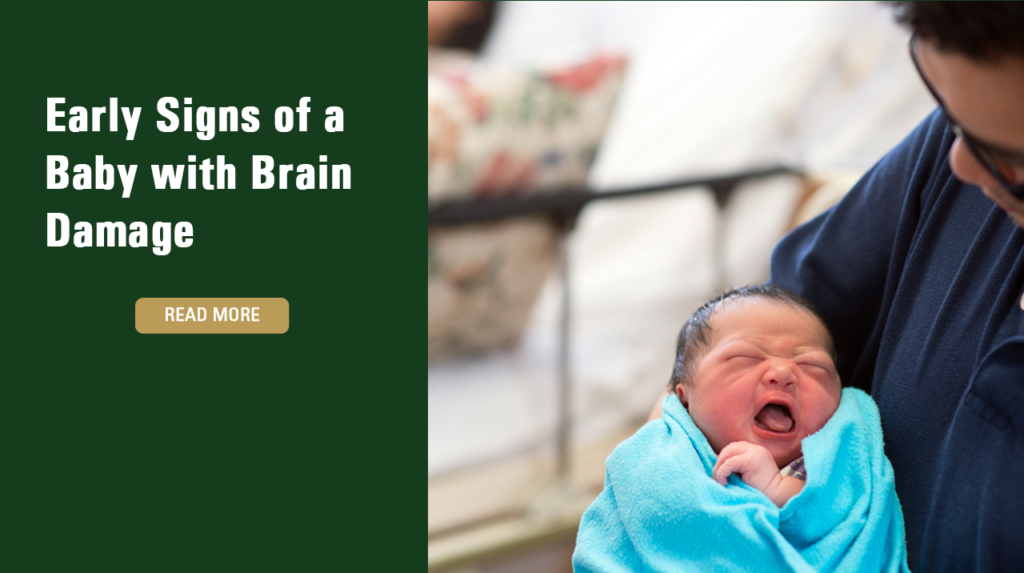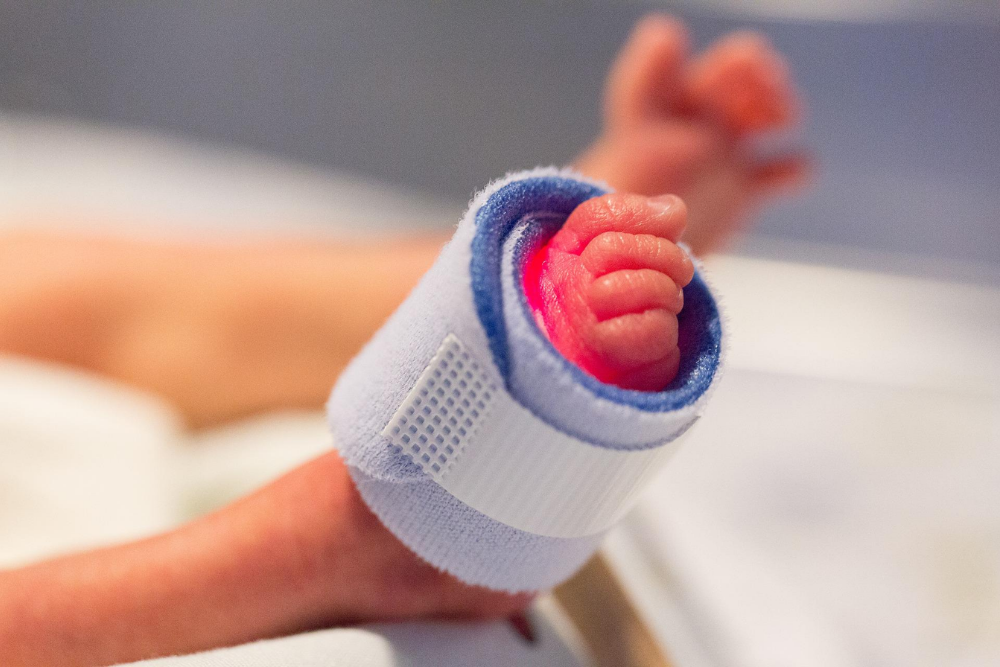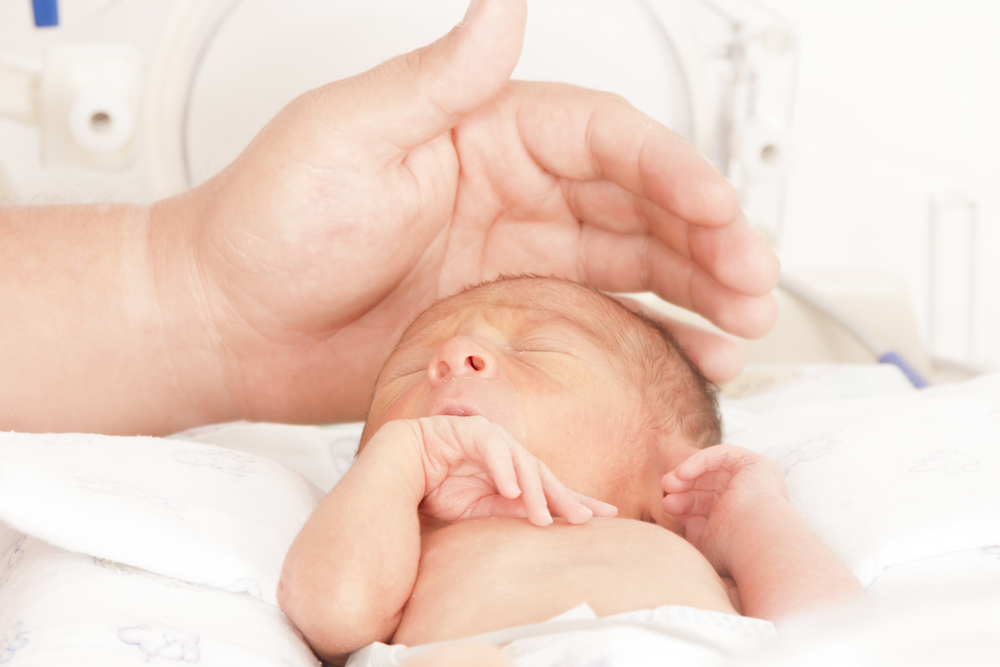Early Signs of a Baby with Brain Damage

If you think that your infant might have suffered brain damage, you should understand the signs and symptoms that might indicate it. Damage to the brains of infants can be caused by untreated infections, oxygen deprivation, or physical trauma. The effects of newborn brain damage can greatly vary based on the location and severity of the injury. Here is what you should know about infant brain damage from the attorneys at Raynes & Lawn.
What Are Common Newborn Brain Injuries?
Some of the types of brain injuries that an infant might suffer are described below.
Hypoxic-Ischemic Encephalopathy (HIE)
HIE is among the most severe types of infant brain injuries and can cause permanent damage. It is a brain injury that results from a lack of oxygen and blood in the brain. Even a short interruption of the blood and oxygen supply to the brain can result in cell death. HIE can be caused by different complications that can occur during labor and delivery.
Brain Bleeds
Ruptured vessels in and around the brain can result in damage caused by blood pooling. A subgaleal hematoma can occur when a doctor negligently uses a vacuum extractor during a difficult birth and involves the accumulation of blood between the infant’s scalp and skull when the veins rupture. The pooled blood can cause the infant to go into shock and cause permanent brain damage.
Hydrocephalus
Hydrocephalus involves cerebrospinal fluid flooding into the brain’s ventricle cavities and is a serious type of infant brain injury. This can occur to a newborn when the infant’s head suffers external trauma during labor and delivery. When excessive force or pressure is applied, the tissues and blood vessels can be damaged and cause a backup of cerebrospinal fluid because of a blockage of its circulation.
Kernicterus
Kernicterus is a brain injury that results when bilirubin builds up in the brain and can jaundice and permanent damage if it is not diagnosed and properly managed after birth. Bilirubin occurs naturally when the body breaks down hemoglobin. However, when too much builds up in the brain, it can be toxic. Nurses and doctors should carefully monitor infants to check for signs of jaundice.
Periventricular Leukomalacia (PVL)
Periventricular leukomalacia is a brain injury that can happen in premature babies and often causes epilepsy and cerebral palsy. This injury occurs when the white matter surrounding the brain ventricles is damaged and decays, leaving fluid-filled cavities in the brain. PVL can also cause other types of developmental delays in addition to cerebral palsy and epilepsy.

Caput Succedaneum
Caput succedaneum is normally not a serious medical condition or brain injury and is common. It involves swelling around the baby’s scalp and head and resolves itself without treatment in most cases. However, if it does not resolve on its own, damage can result.
Early Signs Of Infant Brain Damage
There are a number of early signs that an infant might have suffered brain damage that you should watch for. It is important to understand that an infant with brain damage might not show all of these symptoms, and it is also possible that an infant with one or more of them might not have a brain injury. However, if you notice these signs, you should talk to your doctor as soon as possible to obtain a prompt diagnosis.
Distorted Appearance
Distortions in your infant’s appearance might indicate brain damage, including the following:
- Abnormally large forehead
- Distortion in the shape of the spine
- Distorted facial features
- Abnormally small head
- Medical Symptoms
Some types of brain damage might cause some obvious types of medical symptoms, including the following:
- Muscular stiffness and rigidity
- Seizures
- Inability to feed
- Abnormal eye movements
- Trouble sleeping
Emotional/Behavioral Symptoms
Some children with brain damage will also show behavioral or emotional symptoms. Some of the signs to watch for include the following:
- Fussiness
- Excessive crying
- Irritability
- Mood swings
- Depression
Cognitive Symptoms
As your child grows, he or she might also demonstrate cognitive symptoms that indicate potential infant brain damage.
Some of these symptoms might include the following:
- Delays in language development
- Poor impulse control
- Trouble focusing or concentrating
- Memory problems

If your baby shows any of these signs, you should speak to your doctor to learn whether your child might have suffered infant brain damage.
What To Do If Your Newborn Has Brain Damage
If you learn that your infant has brain damage, you should make sure that you follow all of your doctor’s recommendations for follow-up care and treatment. While complications during labor and delivery can arise and cause brain damage, some types of brain injuries are preventable and caused by the negligence of a doctor or another medical provider.
To learn whether your infant’s brain damage might have been caused by medical malpractice, you should consult an experienced child injury lawyer as soon as possible after you learn about your baby’s condition. Depending on the severity of your child’s brain damage, your baby might need ongoing treatment and lifelong care that can be very expensive. If your baby’s brain damage was caused by the negligence of a medical provider during labor or delivery, you might be entitled to recover compensation for your and your baby’s losses.
A birth trauma attorney at Raynes & Lawn can review your medical records and consult a medical expert to determine whether malpractice might have caused your baby’s condition. We have more than 50 years of experience helping families and victims who have been injured because of the negligence or malpractice of others recover damages for all of their losses. To learn more, call us today for a free consultation at 1-800-535-1797.

For the general public: This Blog/Website is made available by the law firm publisher, Raynes & Lawn, for educational purposes. It provides general information and a general understanding of the law but does not provide specific legal advice. By using this site, commenting on posts, or sending inquiries through the site or contact email, you confirm that there is no attorney-client relationship between you and the Blog/Website publisher. The Blog/Website should not be used as a substitute for competent legal advice from a licensed attorney in your jurisdiction.
For attorneys: This Blog/Website is informational in nature and is not a substitute for legal research or a consultation on specific matters pertaining to your clients. Due to the dynamic nature of legal doctrines, what might be accurate one day may be inaccurate the next. As such, the contents of this blog must not be relied upon as a basis for arguments to a court or for your advice to clients without, again, further research or a consultation with our professionals.
